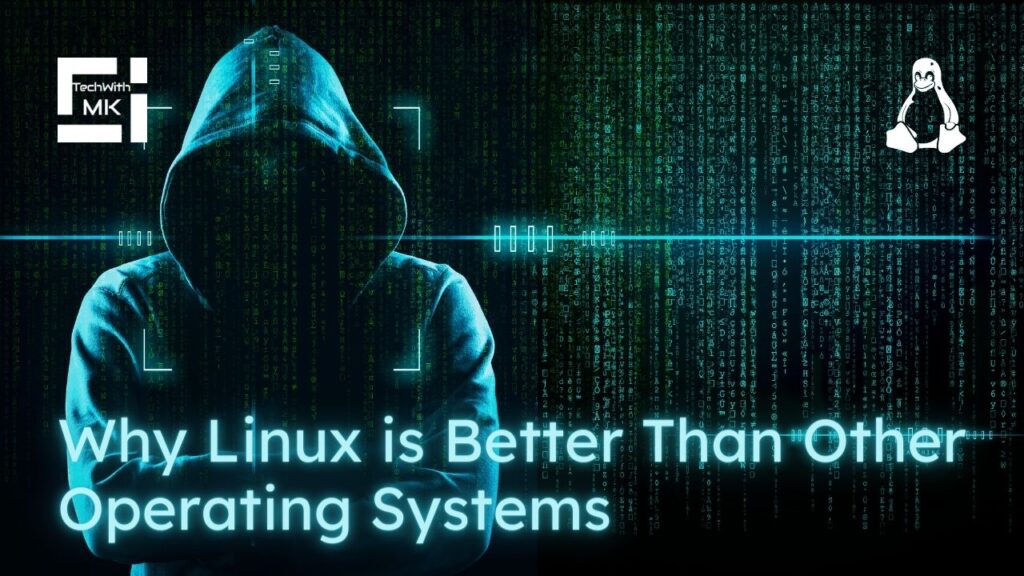In the world of operating systems, Linux stands out for its strength, flexibility, and security. Linux, which arose from the free and open-source software movement, has become a formidable force, revolutionizing how people interact with computers. This blog post will examine why Linux is considered superior to other operating systems and why it is gaining popularity among computer enthusiasts, developers, and businesses.
Open Source Freedom
Linux reflects the open-source spirit by allowing users to access and alter its source code freely. This enables developers to tailor the system to their requirements and generates a thriving community-driven ecosystem that encourages cooperation, creativity, and continual improvement. Because of Linux’s transparency and openness, security vulnerabilities are quickly fixed, resulting in a robust and reliable operating system.
Customizability and Flexibility
Linux’s enormous flexibility and customizability are one of its significant features. Unlike other operating systems that impose a specific user interface or workflow, Linux provides a wide range of desktop environments and distributions to suit various preferences and needs. Linux delivers something for everyone, whether you like a lightweight interface like Xfce or a feature-rich one like GNOME. This flexibility extends beyond the desktop experience, allowing users to customize every part of the operating system to construct their perfect computing environment.
Stability and Reliability
Linux is well-known for its excellent stability and dependability, making it a good choice for personal and enterprise use. Because of Linux’s robust architecture and effective resource management, it can handle huge workloads without sacrificing performance. Unlike certain commercial operating systems with frequent crashes and stability difficulties, Linux is known for its rock-solid foundation, which is vital for critical systems requiring continuous operation.
Superior Security
Security is a primary priority in today’s digital landscape, and Linux shines in this area. Because Linux is open-source, many developers may scrutinize the code, uncover problems, and quickly repair them. Furthermore, Linux’s user-based permission system and strict access controls strongly defend against viruses and unauthorized access. You may configure a secure system with Linux without sacrificing usability or privacy.
Vast Software Ecosystem
Contrary to popular belief, Linux has a flourishing software ecosystem with thousands of high-quality programs. Linux provides diverse possibilities, from productivity tools to creating software, development environments, and server programs. Furthermore, package management technologies such as APT (Advanced Package Tool) and YUM (Yellowdog Updater Modified) facilitate program installation and updates, making it simple to manage your applications.
Cost-Efficiency
The open-source nature of Linux provides significant cost savings. Unlike proprietary operating systems, which frequently require hefty licensing fees, Linux distributions are freely available, allowing people and organizations to save substantial money. Furthermore, Linux’s ability to run efficiently on older hardware enables users to extend the lifespan of their systems, minimizing the need for regular hardware updates.
Conclusion
Due to its open-source nature, customizability, stability, security, large software ecosystem, and cost-efficiency, Linux stands out as a better operating system. Whether you are a developer looking for customization choices or a business looking for robust and secure solutions, Linux provides unrivaled benefits. Embracing Linux means becoming a part of a lively community and opening up a world of possibilities where creativity, cooperation, and freedom are prioritized. So, why settle for less when you can leverage Linux’s power? If you give it a shot, you might discover an entirely new level of computer experience.


